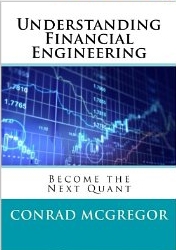In the endless revelations about corruption within the banking industry, Bloomberg gives us a taste of the market movements caused by trades at banks for the benefit of the traders:
The traders, and others at banks including HSBC Holdings Plc (HSBA) and Royal Bank of Scotland Group Plc, would congregate in chat rooms an hour or so before benchmark rates are set to discuss their aggregate trading positions and how to execute them to their mutual benefit
And you just have to love the image of them congratulating and high-fiving eachother for ripping everyones’ face off:
Despite the impact their behavior had on the value of trillions of dollars of investments around the world, the traders regularly congratulated each other for successfully manipulating the market.
If the currency manipulation doesn’t get you going, then you can move on to Matt Taibbi’s article on JP Morgan’s fraud in the mortgage market:
When Fleischmann and her team reviewed random samples of the loans, they found that around 40 percent of them were based on overstated incomes – an astronomically high defect rate for any pool of mortgages; Chase’s normal tolerance for error was five percent. One mortgage in particular that sticks out in Fleischmann’s mind involved a manicurist who claimed to have an annual income of $117,000. Fleischmann figured that even working seven days a week, this woman would have needed to work 488 days a year to make that much. “And that’s with no overhead,” Fleischmann says. “It wasn’t possible.”
But when she and others raised objections to the toxic loans, something odd started happening. The number-crunchers who had been complaining about the loans suddenly began changing their reports. The process she describes is strikingly similar to the way police obtain false confessions: The interrogator verbally abuses the target until he starts producing the desired answers. “What happened,” Fleischmann says, “is the head diligence manager started yelling at his team, berating them, making them do reports over and over, keeping them late at night.” Then the loans started clearing.
And much more on how JP worked with the government to bury the case:
Instead, the government decided to help Chase bury the evidence. It began when Holder’s office scheduled a press conference for the morning of September 24th, 2013, to announce sweeping civil-fraud charges against the bank, all laid out in a detailed complaint drafted by the U.S. attorney’s Sacramento office. But that morning the presser was suddenly canceled, and no complaint was filed. According to later news reports, Dimon had personally called Associate Attorney General Tony West, the third-ranking official in the Justice Department, and asked to reopen negotiations to settle the case out of court.



